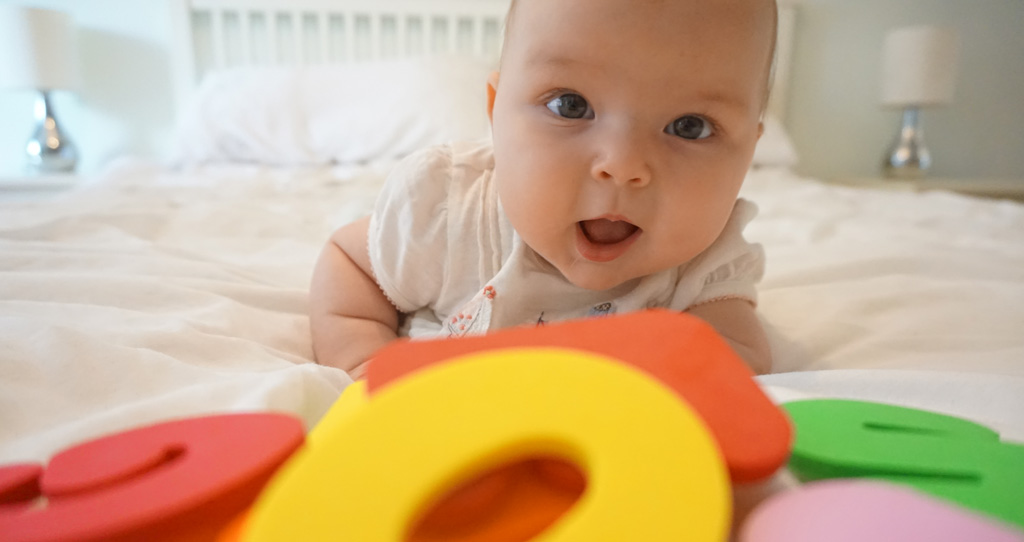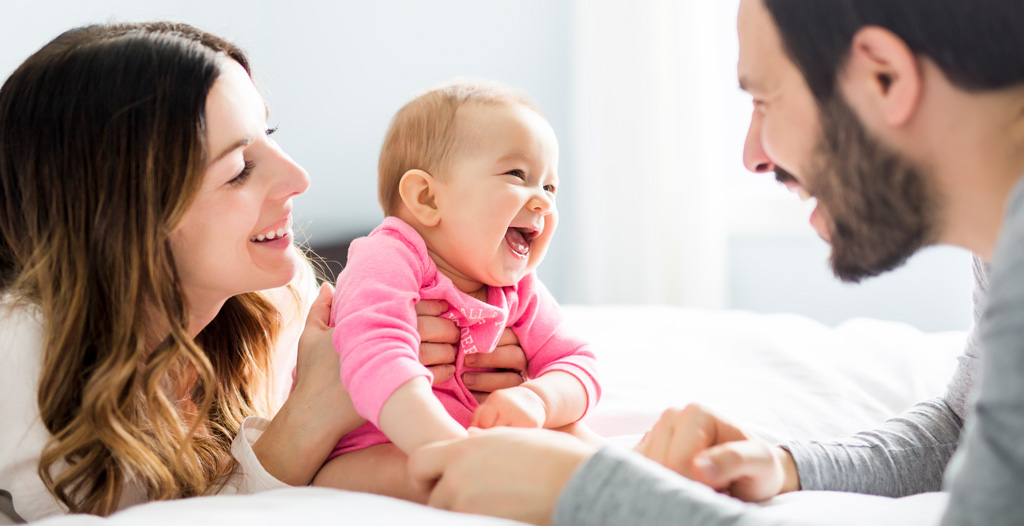When I was a rookie mum and my first child turned one, a particularly concerned acquaintance kept asking me, “So, is he talking yet?” And every time she asked me this question, my mumbled reply was, “No, not yet.”
As the months went by, I started to get really worried. The only “proper” words he said were “da” (this could have meant “dog” or “dad” – who knows) and “ammi” (that would be me) and a few more. But the majority of his speech was made up of ‘baby talk’ or babbling as it is known. This went on until he was a little over two years old, of course more frequently interspersed with ‘proper’ words.

Now, I know better. I really shouldn’t have been so worried back then, because babbling, or baby talk, is a perfectly normal part of a child’s development. And with some little ones, it goes on for longer than for others.
So, if your little one is babbling merrily away and you are starting to worry about when he will really start to talk, here is some great information for you to understand exactly how his babbling is actually helping him with language development.
Not nonsense
“Dad-dad ba ba ba baaa, mum-mum…”
While babbling may often sound like a string of nonsensical utterances, it’s actually not. Research shows that baby talk is a really important component of language development. But in order to optimise on this aspect of speech development, there is one other very important element: your response to baby.
In the past, parents were often told to talk to their babies using regular adult speech. However, current research has found that when babbling is prompted and responded to with “Parentese” – the exaggerated and highly animated style of speech parents use to talk to their baby – the result is most likely better language acquisition skills.
The encouragement of babbling has also been found to help bridge the “word gap,” which is the term used to indicate the difference in speech and language development between babies at opposite ends of the socio-economic spectrum.
So babies from higher income families are thought to develop language and speech at a faster pace. This is because their parents are highly responsive to their babbling. This is the opposite for little ones of lower income families, for a variety of reasons.

How you talk to your baby matters
Ramírez-Esparza, assistant professor in the Department of Psychology, and her colleagues in UConn’s Department of Speech, Language, and Hearing Sciences, and Patricia Kuhl, co-director of the University of Washington’s Institute for Learning & Brain Sciences, led a study on early language development in little ones in 2015.
What they discovered was that the style of speech parents use, as well as the social context within which this speech takes place, is more effective at helping a baby’s vocabulary grow than the quantity of words used.
Twenty-six babies (around one year of age) took part in the study. They wore vests containing audio recorders that collected sounds from their auditory environment for eight hours a day for four days.
Researchers analysed the recorded speech and when the babies were two years old, parents filled out a questionnaire measuring how many words their children knew. It was found that babies who had heard more baby talk knew more words.
“What our study shows is that how you talk to children matters,” Ramírez-Esparza says. “And the use of ‘parentese’ is much better at developing language than regular adult speech. It’s even better if communication occurs during one-on-one interactions.”

Here are some of the most important findings of the study, summarised for you:
- Encourage your baby’s babbling by using exaggerated vowels in your Parentese. For example, “How are youuuu?” and “Look at thaaaaat!”
- Raise the pitch of your voice when talking to your little one to encourage more babbling from him in response.
- Whenever possible, ‘talk’ to your baby when no distractions (other kids, adults) are around.
- Talk to your baby using Parentese as frequently as possible, even though you might feel a little silly doing so!
- Use Parentese with a happy tone of voice, and while going about day-to-day activities, e.g. “Yum, this tastes so goooood!” or “Let’s find your shoooes!”
- Read aloud to your baby whenever you can in order to ensure heightened communication.
Other than these tips, encourage your baby’s speech development by:
- Imitating his babbling,
- Making eye contact when he’s babbling to you,
- Pointing out and verbalising noises: “Listen, that doggy is saying ‘WOOOF, WOOOF!’”
- Not worrying about sounding silly or not using “real” words.
Mums and dads, do keep in mind that speech delay in kids may be a red flag for other developmental issues. If you suspect this, speak to a doctor without delay.
This story originally appeared on theAsianparent and is republished here with permission.


